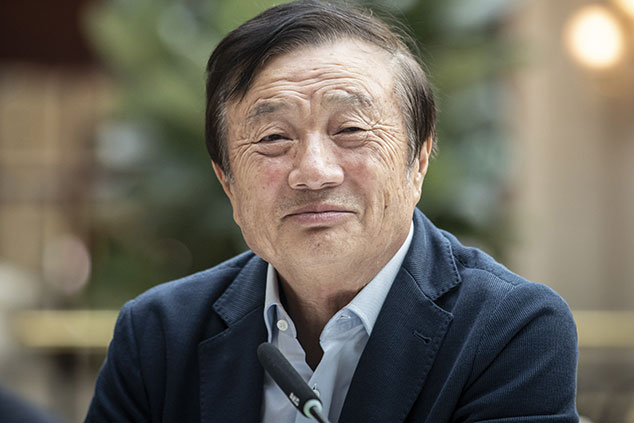
The US pushed its campaign against Huawei into “hyperdrive” on Monday, with the Department of Justice charging the Chinese telecoms giant with crimes including sanctions violations and theft of trade secrets, says Michael Schuman in Bloomberg. Clearly, the US is engaged in a “wider, geopolitical struggle to contain a rising China” and to some extent Huawei has “got caught in the crossfire”.
Nevertheless, it’s becoming increasingly difficult for the company to “paint itself as an entirely innocent victim”. Few companies of this size have attracted “such a litany of accusations of rule-breaking”. As long ago as 2003, Huawei admitted copying router software code from Cisco. The Justice Department claims managers offered bonuses to staffers who stole trade secrets. “Is there fire where there’s smoke?”
Standing up to Beijing
Yes, says Mike Rogers, a former chairman of the House Permanent Select Committee on Intelligence, in The Wall Street Journal. Beijing is using companies like Huawei and ZTE “as an extension of its intelligence network… With the 5G future close at hand, this realisation can’t come a moment too soon.” 5G network sensors are destined for aircraft and self-driving vehicles and will revolutionise the way we use technology. Through Huawei, “Beijing is working to control the 5G network rollout, control the international standards for its deployment”, infecting its very foundations. “Businesses and governments must stand up to Beijing.”
Australia, Britain, Canada, Germany and Japan are all now looking closely at their telecoms-equipment supply chain, says Kate O’Keeffe in The Wall Street Journal. Australia and New Zealand have already restricted Huawei’s involvement in their future 5G networks. Huawei has denied breaking US law, and the firm’s reclusive founder, Ren Zhengfei, made a rare public appearance to allay fears, saying that the Chinese government had never asked it for data and he would “definitely” refuse if it did, reports the Financial Times.
However, the firm’s history will “always attract suspicion”. Ren was an engineer in China’s People’s Liberation Army and an early Huawei contract was to build a communications system for the PLA when Beijing – “mirroring today’s situation” – refused to trust America’s Cisco to do so.
Other players in the telecoms industry aren’t happy about all this, says Ben Woods in The Daily Telegraph. British telecoms companies are warning that barring Huawei from the 5G roll out would cost billions and delay it by up to 18 months. As a whole, Europe’s carriers have “at least 20 billion reasons to love Huawei”, says Liam Proud on Breaking Views.
That’s a rough estimate of the market value in euros that they could lose – down from €294bn today – if Huawei is excluded from new contracts. That might do “little to deter hawkish politicians”. Investors, however, have already watched the Thomsons Reuters Europe Telecommunications Services Index slide by two-fifths over the past year. “A Huawei ban would deprive the sector of a valuable crutch.”
US wants shake-up in China trade talks
Senior Trump administration officials insist that the Huawei crackdown (see above) has nothing to do with this week’s trade talks between the US and China, even if Beijing is unlikely to see it that way, says the Financial Times. If the US and China can’t strike a deal, US tariffs on $200bn of Chinese goods will rise from 10% to 25% on 2 March. Both sides are under pressure. China’s economy is slowing and President Trump needs some good political news. Beijing does not want to be cut off from US technology critical to upgrading its economy, says Tom Mitchell in the FT.
In a move intended to “smooth” talks, the Chinese government announced plans to rush a new foreign investment law through that will “formally ban ‘forced’ technology transfers and other illegal interference by government officials in the operations of foreign-invested enterprises”.
More than a “few regulatory tweaks” are needed, says Michael Schuman in The Atlantic. Aside from wanting China to stop forcing US firms to disgorge their commercial secrets, Washington wants Beijing to cut back on the subsidies it “lavishes” on favoured industries and to widen access to China’s lucrative domestic market to foreign companies. This requires a “shake-up of the entire relationship between state and business in China”.
President Xi Jinping, for all his talk of free trade, has shown little inclination for such change. Indeed, since coming to power in 2012, a priority has been to strengthen Communist Party control. This means that a “truly comprehensive trade pact will be difficult, perhaps even impossible, to reach”.